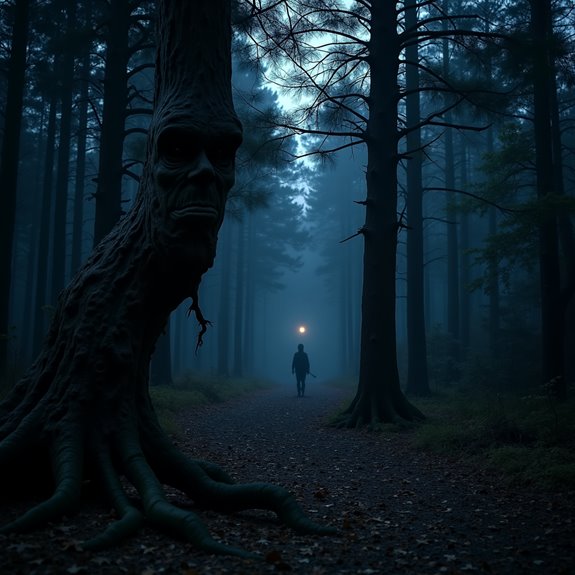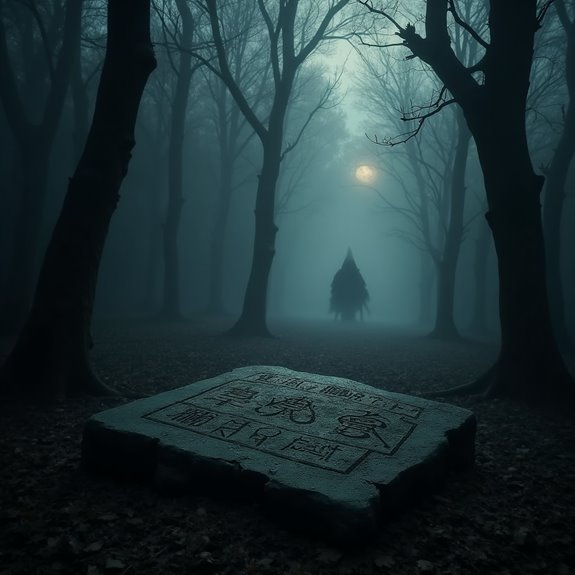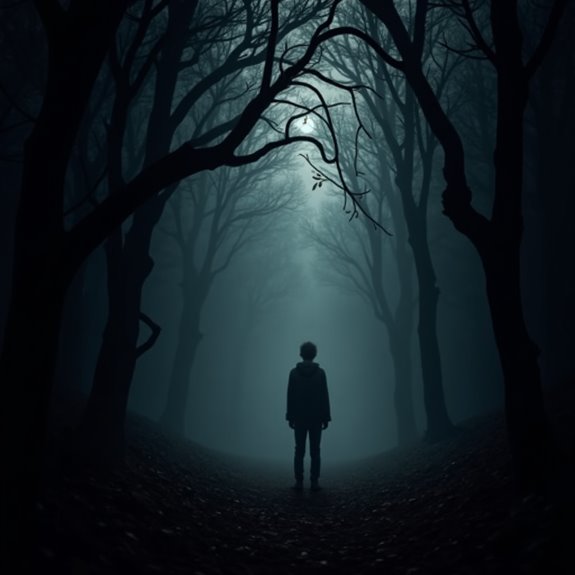What Happens If You Speak the Name of a Skinwalker?
In Navajo culture, speaking the name of a skinwalker isn’t just a casual slip; it’s a serious matter imbued with profound fear. Many believe it can summon the creature’s dark presence or invite misfortune into one’s life. This belief reflects a deeper understanding of the supernatural and the power of language. The implications of such an utterance extend beyond mere superstition, raising questions about cultural respect and personal safety. What consequences might one truly face?
Introduction

In many Native American cultures, the concept of skinwalkers evokes both fear and fascination. These supernatural figures are believed to be witches capable of transforming into various animals, using this ability to navigate and manipulate the world around them. Stories about skinwalkers often intertwine with moral lessons and cultural teachings, warning against the misuse of power and the dangers of straying from traditional beliefs. The mention of a skinwalker’s name can provoke anxiety, as many believe it could summon their attention or invite misfortune. Consequently, people exercise caution, often opting to use euphemisms or avoid the term altogether. This cultural reverence highlights the deep-rooted fears and the complex interplay of spirituality and storytelling in Native American traditions, keeping the skinwalker legend alive.
Navajo Mythological Creature Origins

Skinwalkers originate from Navajo mythology, where they are known as “yee naaldlooshii,” meaning “with it, he goes on all fours.” This term signifies their ability to shapeshift into various animals, primarily for malevolent purposes. According to tradition, skinwalkers are male witches, who have acquired the power to become animals by committing dark acts, often involving the death of a close relative. This transformation grants them heightened speed, agility, and stealth, making them formidable beings within Navajo lore. Cultures surrounding skinwalkers portray them as terrifying entities that evoke fear and caution. These creatures serve as a means to address deeper societal issues, exploring themes of betrayal, abuse of power, and the consequences of negative actions within the community.
Notable Cases or Sightings

When residents of the Navajo Nation share stories about encounters with skinwalkers, chills often run down listeners’ spines. One notable case involves a family camping near a remote canyon. They heard unsettling howls echoing at night, punctuated by the sound of rustling bushes. Later, they claimed to have seen a large coyote-like figure watching them from a distance, its eyes glowing eerily in the dark. In another incident, a farmer reported strange livestock deaths and eerie footprints leading to the woods, sparking fears of a skinwalker’s presence. Locals believe these sightings often serve as warnings, urging caution when wandering alone at night. These accounts weave a haunting tapestry of fear and respect for the elusive beings that roam the night.
Common Theories or Explanations
Believers and skeptics alike offer various theories to explain the enigmatic presence of skinwalkers. Some suggest these creatures serve as manifestations of fear and cultural trauma, representing the dark side of human nature. Others argue skinwalkers are merely shapes or mythological figures stemming from Navajo lore, warning against witchcraft and moral corruption. Scientific explanations often place skinwalker sightings into the domains of misidentification or psychological phenomena, attributing encounters to heightened stress or hallucinations. Additionally, some theorists assert that skinwalkers symbolize societal issues, such as the decline of traditional values. The blend of folklore, fear, and cultural narratives keeps the skinwalker legend alive, ensuring debates about their existence and nature will continue in both tribal communities and popular culture.
Frequently Asked Questions
Can Speaking Their Name Summon a Skinwalker to You?
Many believe speaking a skinwalker’s name might invite them closer. However, others argue it merely raises curiosity. Ultimately, the risk of summoning one largely depends on the beliefs and experiences of the individual involved.
Are There Specific Rituals to Avoid Harm After Naming One?
They believe certain rituals can ward off harm after naming a skinwalker. Offerings, prayers, and protective symbols are often used, helping individuals feel safer and minimizing negative energies surrounding their interactions with these supernatural beings.
What Should You Do if You Accidentally Say Their Name?
If someone accidentally says a skinwalker’s name, they should quickly cleanse the area with sage, recite protective prayers, and avoid any disturbances. It’s important to remain calm and acknowledge the mistake respectfully.
Can Skinwalkers Hear You if You Mention Their Name From Afar?
Many believe skinwalkers possess heightened senses, allowing them to hear whispers from afar. Some say mentioning their names can draw unwanted attention, increasing the danger for those who unknowingly invoke their presence through spoken words.
Is It Safe to Discuss Skinwalkers With Others?
They say discussing skinwalkers can be risky. Many believe it invites unwanted attention or danger. While some dismiss it as superstition, others take precautions, wary of the potential consequences that might arise from such conversations. Understanding skinwalker legends in Navajo culture goes beyond mere folklore; it involves deep-rooted beliefs that shape the identity and spirituality of the Navajo people. Many individuals seek to learn about these legends not only to appreciate their complexity but also to respect the cultural significance they hold. As such, these discussions often carry an air of reverence, reminding everyone of the fine line between curiosity and cultural insensitivity.


